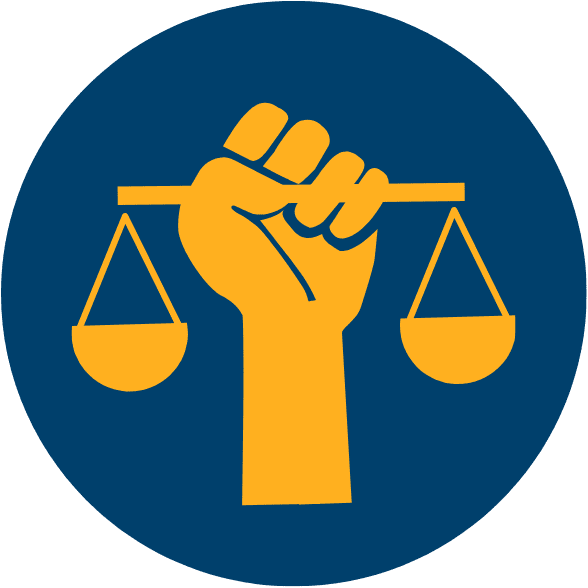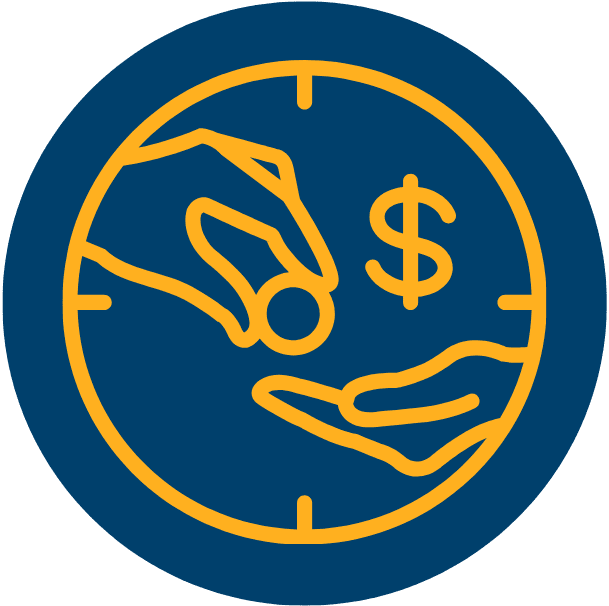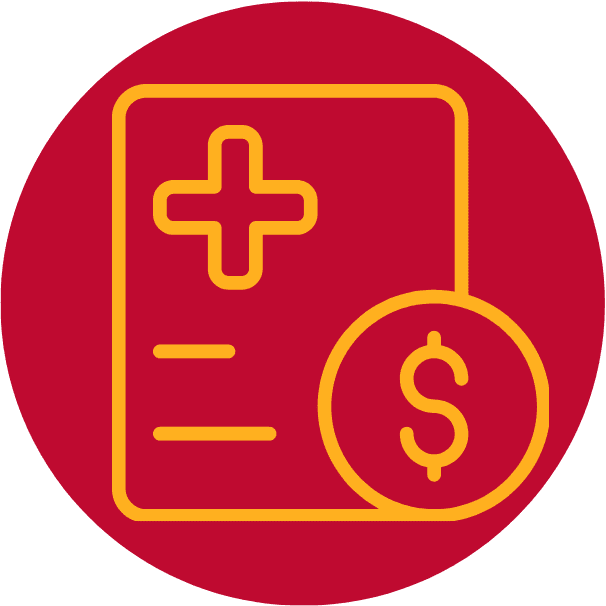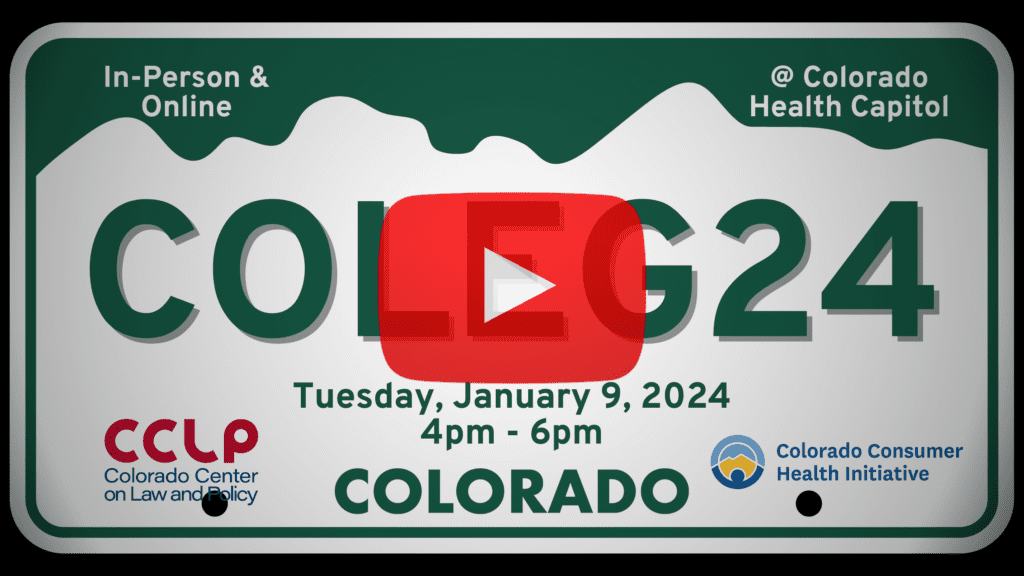The Second Regular Session of the 74th General Assembly kicked off on January 10, 2024. Stay up to date on CCLP’s bill positions in our new 2024 bill tracker! You can also read CCLP’s legislative watch for April 5, 2024, which includes more information about the bills CCLP has taken a position on.
CCLP’s priority platform for 2024
Our 2024 Legislative Priorities Platform identifies five policy areas where the opportunity exists to make real change, in partnership with other advocacy groups, community members, legislators, and state leaders.

Expanding access to justice
CCLP advocates to ensure Coloradans have the tools to assert their rights, whether that means access to courts or greater accountability by private and public entities.

Removing administrative burden
CCLP aims to reduce unnecessary hurdles that are so often a barrier for people who face poverty so that Coloradans can meet their basic needs and become self-sufficient.

Preserving affordable communities
CCLP supports housing initiatives centering community priorities and furthering a path toward affordability for all renters in Colorado, including mobile home park residents.

Progressive tax and wage policies
CCLP continues to back progressive tax and wage policies that boost the incomes of working families and bring more stability to household budgets.

Reducing health care costs
CCLP aims is to keep health care industry accountable, ensuring they provide Coloradans with the care and coverage they need, and honoring their commitment to the public good.
CCLP’s bills for 2024
SB24-116, Updates to Hospital Discounted Care
Hospital Discounted Care (HDC) protects low to moderate income patients from high healthcare costs and medical debt. Throughout the state, Colorado residents who meet certain income requirements can qualify to receive discounts on care. This 2021 law established the first statewide hospital charity care requirements, unifying approaches that had been highly variable across Colorado. The HDC law took effect in September of 2022, just 16 months before the launch of the 2024 legislative session. As with any new large-scale effort, the roll-out of HB21-1198 has helped stakeholders and the state identify opportunities to enhance the program’s effectiveness. With coalition support, sponsors of the 2021 legislation, Sen. Janet Buckner and Rep. Iman Jodeh are bringing SB24-116 to address concerns of both patients and health care facilities.
CCLP is in SUPPORT of Senate Bill 24-116! Read the fact sheet here (updated 2/9/2024).
SB24-116 passed 2nd reading, Senate Floor with amendments on April 25, 2024.
SB24-211: Adjustments to the Necessary Document Program
The Necessary Documents Program was made permanent by Senate Bill 21-018 and is currently funded at $300,000 per year from the Colorado’s General Fund. The current funding falls short of meeting the true need. Social service providers routinely run out of vouchers to distribute to clients in need, and in some cases spend thousands covering the costs out of pocket. The program also poses administrative challenges, including the complicated program structure, delayed voucher transfers, and rigid identity verification standards. Additionally, vouchers are time-limited, remaining valid for only 30 days after distribution to a client, making the utilization rate extremely low, at roughly 30%. The goal of our bill is to increase funding for this program to $900,000 and create a system for a paperless voucher to reduce barriers to accessing this service.
CCLP proudly SUPPORTS the Necessary Documents ID bill. Read the fact sheet here (updated 2/15/2024.) OR y en español (actualizado el 15/02/2024.)
The Necessary Documents ID bill has not yet been introduced in the Colorado General Assembly.
HB24-1133, Updates to Clean Slate Act
Colorado passed the Colorado Clean Slate Act nearly unanimously in 2022, a piece of legislation that stands to improve the social and economic well-being of people with past, non-violent records. This year, we are working again with Colorado’s Clean Slate Coalition on a handful of fixes to that act, providing clarification and bringing changes that will reduce administrative burdens for courts and for Coloradans who deserve a second chance.
CCLP is in SUPPORT of House Bill 24-1133! Read the fact sheet here (updated 3/12/2024.)
HB24-1133 was referred amended to the House Appropriations Committee on February 21, 2024.
HB24-1286, Colorado Equal Justice Fund
Colorado ranks 31st in the nation in per capita state legal aid funding; that’s only 1 legal aid lawyer for every 13,000 eligible low-income residents. Long wait times for representation are an egregious violation of Coloradan’s right to access justice, especially for our most vulnerable populations. This bill will create the Colorado Equal Justice Fund, paid for by a small increase in civil court filing fees, to fund more legal services for those who are currently going unrepresented when their rights are being violated.
CCLP is in SUPPORT of House Bill 24-1286! Learn more on CCLP’s Colorado Equal Justice Fund page or read Colorado Access to Justice Commission’s special report on Legal Aid funding in the West (opens in a new tab).
HB24-1286 was referred amended to the House Floor on April 10, 2024.
HB24-1294, Updates to Mobile Home Park Act
With over 100,000 residents across Colorado, mobile homes provide an opportunity for homeownership at a lower price than traditional single-family homes. While current legislation (the Mobile Home Park Act) establishes guidelines for the responsibilities of homeowners and park owners and increases protections for lot renters, critical gaps remain, leaving park residents vulnerable to displacement and financial harm. The proposed updated protections for mobile homeowners bill seeks to address these gaps by providing greater transparency in Rent to Own Agreements between park owners and residents, restricting enforcement of arbitrary park rules, and expanding accessibility. Additionally, the bill aims to promote equity in rent prices for new park residents and will introduce a “naughty list” for mobile home parks that will be prohibited from raising rents due to existing violations. Through these measures, the bill will provide greater safeguards for park residents and work toward a more secure and equitable living environment.
CCLP proudly SUPPORTS House Bill 24-1294! Read the fact sheet here (updated 02/15/2024.)
HB24-1294 passed Senate Appropriations and will be heard on the Senate Floor.
This year CCLP co-hosted our annual Legislative Preview event with our friends at Colorado Consumer Health Initiative, online and in-person at Colorado’s Health Capitol.
2024 State Legislation List
Throughout the legislative session, CCLP compiles a list of bills concerning economic opportunity and poverty reduction. This list will include bill sponsors, assigned committees, and the organizations that have expressed their support for or opposition to each bill.
Updated April 1, 2024
2024 Skills2Compete Workforce and Skills Legislation at the Capitol
Each year the Skills2Compete Colorado coalition takes positions on bills which focus on issues relating to skills training for adult Colorado workers.
Updated March 28, 2024






